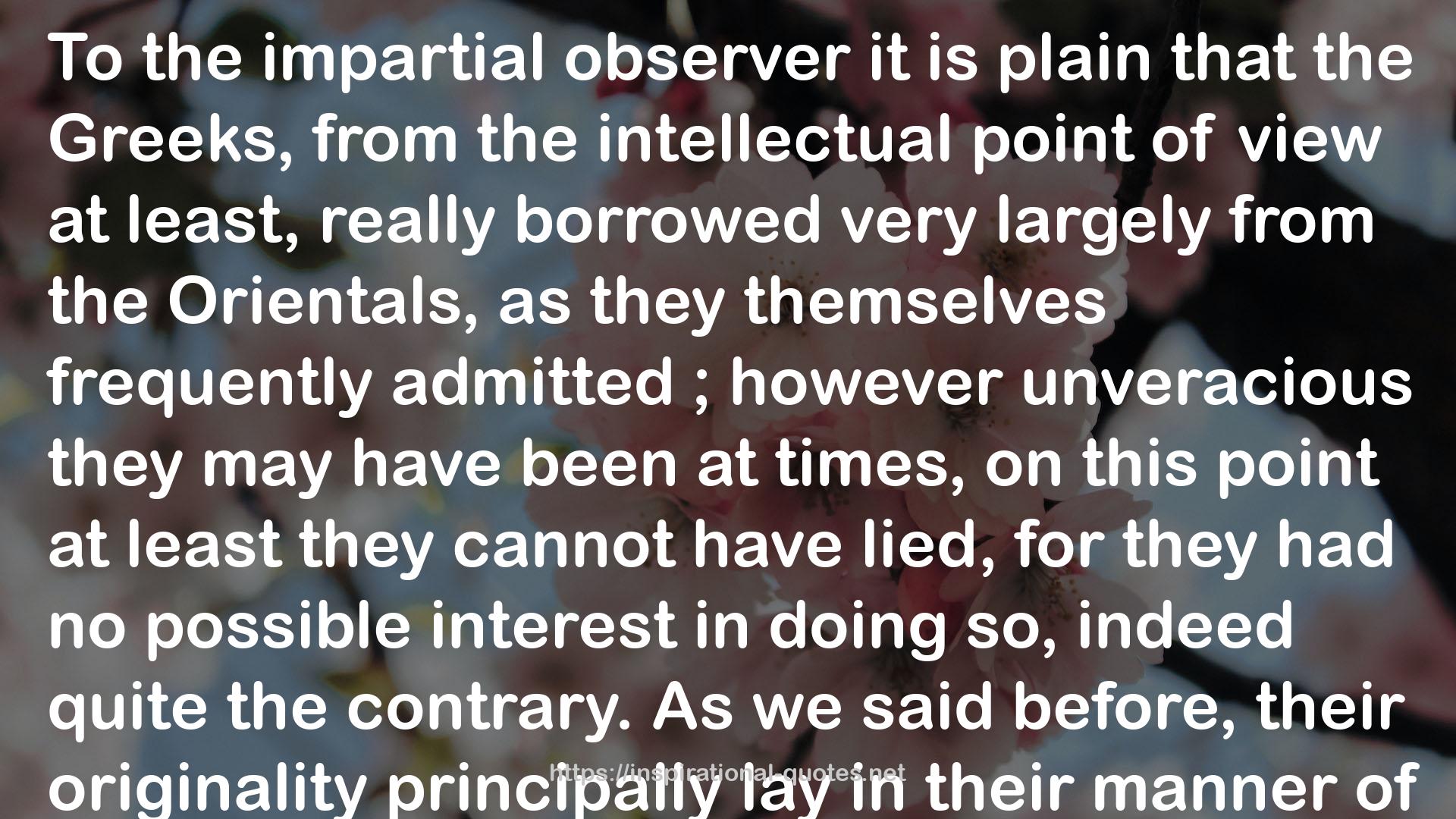" To the impartial observer it is plain that the Greeks, from the intellectual point of view at least, really borrowed very largely from the Orientals, as they themselves frequently admitted ; however unveracious they may have been at times, on this point at least they cannot have lied, for they had no possible interest in doing so, indeed quite the contrary. As we said before, their originality principally lay in their manner of expressing things, by means of a faculty for adaptation one cannot deny them, but which was necessarily limited by the extent of their comprehension ; briefly, their originality was of a purely dialectical order. Actually, since Greeks and Orientals differed in their characteristic ways of thinking, there were necessarily corresponding differences in the modes of reasoning which they employed ; this must always be borne in mind when pointing out certain analogies, real though they be, such as for instance the analogy between the Greek syllogism and what has fairly correctly been called the Hindu syllogism. It cannot even be said that Greek reasoning is distinguished by an ^exceptional strictness ; it only appears stricter than other methods of reasoning to people who are themselves in the habit of employing it exclusively, and this illusion is due solely to the fact that it is restricted to a narrower and more limited field and is therefore more easily defined. On the contrary, the faculty most truly characteristic of the Greeks, but which is little to their advantage, is a certain dialectical subtlety, of which the dialogues of Plato provide numerous examples ; there is an apparent desire to examine each question interminably, under all its aspects and in minutest detail, m order to arrive finally at a rather insignificant conclusion; it would appear that in the West the moderns are not the first people to have been afflicted with “ intellectual myopia.”
Perhaps, after all, the Greeks should not be blamed too severely for restricting the field of human thought as they have done ; on the one hand this was an inevitable result of their mental constitution, for which they cannot be held responsible, and on the other hand they did at least in this way bring within reach of a large part of humanity certain kinds of knowledge which were otherwise in danger of remaining completely foreign to it. It is easy to realise the truth of this if one considers what Westerners are capable of to-day, when they happen to come into direct contact with certain Oriental conceptions and set about interpreting them in a manner conforming to their own particular mentality : anything which they cannot connect with the “classical” idiom escapes them completely and whatever can be made to tally with it, by hook or by crook, is so disfigured in the process that it becomes almost unrecognizable. » "
― René Guénon , Introduction to the Study of the Hindu Doctrines
